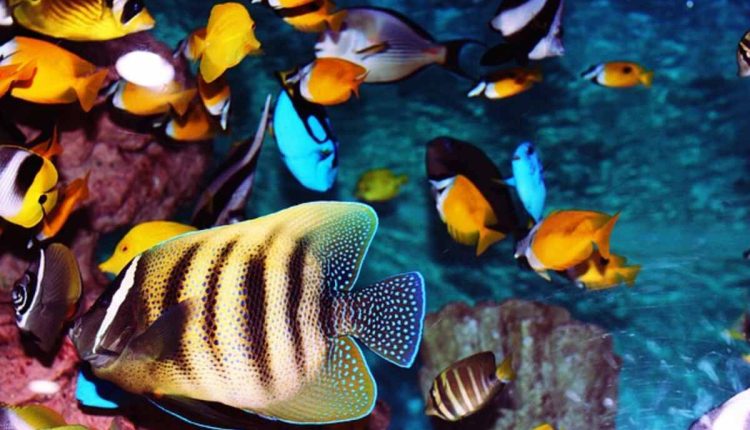A Guide to Aquarium Construction
How to Choose and Set Up an Aquarium.
Aquariums range in size from little fish bowls to massive tanks containing a hundred gallons or more, so getting the right one for your fish is essential. Remember the general guideline of one fish per gallon of water while stocking your aquarium. More room is needed for fish of a larger size, such as the Oscars. Your child can enjoy an aquarium as large as a 20-gallon tank or as small as a fish bowl. I think a larger tank would look better in a living room setting. This is a perfect use for thirty-gallon tanks. There are two main types of tropical fish tanks. Schooling fish do better in horizontal (broad) tanks, while angel fish, gouramis, and similar species do better in vertical (tall) tanks. The “29-Show” tank, which is 29 gallons but significantly taller, is my favorite.
Do not skip out on the aquarium stand while installing your aquarium. This is where most issues manifest once the fish tank has been installed. The two most typical issues that arise after an aquarium has been set up are (1) the owner “does not like” the stand used and wants it changed, and (2) the stand used cannot correctly support the aquarium once the water has been added. A high-quality hardwood aquarium stand with drawers and shelves for storing food, supplies, books, etc., is highly recommended.
Fluorescent and incandescent lights are both acceptable for use as illumination. Fluorescent lighting is recommended since it does not generate heat like incandescent bulbs.
Put the stand where it will look best. Remember that you’ll need to be close to an electrical outlet and that placing an aquarium in direct sunlight will promote algae growth. Nothing is more unpleasant than a fish tank full of green fish.
Okay, so you finally have a place to put your fish tank…
How to Establish a Fish Tank
Keep the aquarium dry and clean.
The background is applied; for most aquariums, this is the exterior wall behind the display. Aside from providing cover for your fish, backgrounds can help hide unsightly components like plumbing and equipment.
The under-gravel filter should be positioned at the tank’s base.
In a bucket, wash the gravel thoroughly with clean water that can be consumed. If you don’t take the necessary precautions, your fish tank may quickly get hazy. While aquariums with colored gravel are excellent for kids’ rooms, natural gravel is preferable for public displays such as living rooms. Compared to colored gravel, the cost of natural gravel is lower, and it also looks nicer. Put between 1 and 2 inches of gravel down. Small hills and valleys allow for more creative hill shapes, but large hills reduce the efficiency of the filtering system.
Fill up to within a couple of inches of the top with potable water. You need to be able to put your arm in there, but you don’t want things to spill out when you do.
You should set up the heater but not connect it until it’s entirely submerged. Tropical fish prefer water temperatures between 70 and 80 degrees.
Put in a Pump and some Air Stones
Hang the thermometer in the aquarium’s visible front corner or on a side.
Lay out boulders and other cave-themed decor.
Plants can be put anywhere you choose. The best area to hide top-dwelling fish is taller plants, which should be placed in the back, particularly in the corners. It’s preferable to group plants of varying colors.
Fill the tank before proceeding with the cover and illumination.
Use a chlorine neutralizer.
The aquarium should run for at least three days before adding fish. Until your aquarium ecosystem stabilizes, I suggest stocking it with a few small, low-cost tropical fish. While my tank is cycling, I keep neon tetras in it. They are attractive enough to keep if they make it, but it’s not a big issue if they don’t. If your initial fish die, you can let the aquarium cycle for a few more days without any inhabitants before bringing in a sample of water to your local fish store for testing and following the store’s advice.
I hope you have many happy years with your fish in your new aquarium.
The author suggests checking out the Tropical Fish Guide at [http://www.tropicalfishsite.info] for comprehensive advice on caring for tropical fish.
The article’s author also runs a website where shoppers can find unusual or hard-to-find presents.
Read also: Experience Efficiency and Comfort with Our High-Quality Furnace Installation in…

